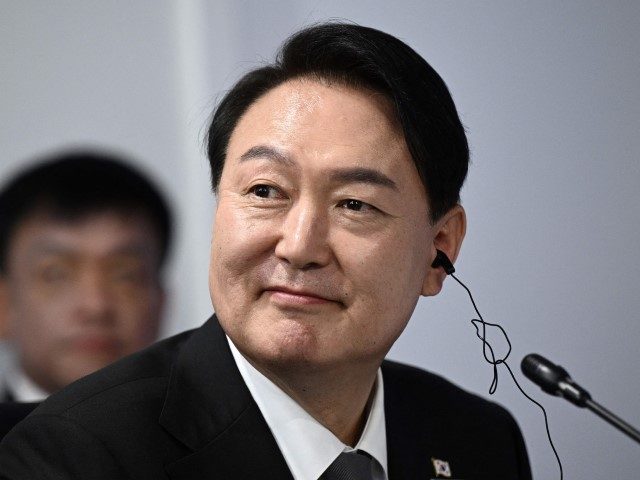South Korean President Yoon Suk-yeol held a fiscal strategy meeting at a university near Seoul on Thursday where he said it was time to “wake up from the fantasy of fiscal universalism” and realize that unlimited government spending is not the way to nourish a healthy economy.
Yoon defined fiscal universalism as the belief that if the government spends more money, “automatically, the economy will grow and people’s livelihoods will improve.”
“In order to overcome the people’s livelihood issues and fiscal crisis that we face, the government has to be the first to tighten its belt,” Yoon told a gathering of government officials and business leaders at Chungbuk National University in Cheongju.
Yoon could easily have pointed to the U.S. economy as proof of his thesis, as Americans drown under a tidal wave of inflation caused by madcap government spending during the Wuhan coronavirus pandemic – piled atop delirious non-budgets written for years before the pandemic arrived – but he primarily addressed South Korean policy under his left-wing predecessor, Moon Jae-in.
“Over the past five years, fiscal conditions have greatly deteriorated. Our solid finances are now in a state where they are considered a potential risk factor for our sovereign ratings,” said Yoon.
The Yoon administration plans to address this perilous financial situation by cutting the government budget deficit from 5.1 percent to under three percent in a single year and reducing the overall debt-to-GDP ratio to around 50 percent by 2027.
By way of comparison, the U.S. federal budget deficit was 12.1 percent of GDP in the last completed fiscal year and is projected to fall to 5.8 percent in fiscal year 2022. The federal government’s debt-to-GDP is hovering around 130 percent after the insane levels of pandemic spending.
The U.S. government and private-sector economy are both far larger than South Korea’s, so the sums of money involved are much higher. The U.S. national debt is currently over $30.5 trillion, with a $1.7 trillion annual deficit, against a GDP of $23.5 trillion. South Korea has a national debt of about $185 billion and an annual deficit of $83 billion, versus a GDP of $1.6 trillion.
Yoon said an important step toward reaching these goals would be “selling off the assets of public organizations, starting with those that have little relevance to the organizations’ functions, and carrying out ‘a high-degree restructuring of expenditures without sanctuary’ to ensure taxes are not wasted,” as Yonhap News summarized his remarks.
The South Korean president promised that he could accomplish this tightening of the government’s belt without depriving “vulnerable social groups” of the support they need during a time of economic crisis, or eliminating vital investments in advanced technologies. In fact, Yoon offered proposals for increased spending in certain areas, such as military salaries and higher education.

COMMENTS
Please let us know if you're having issues with commenting.